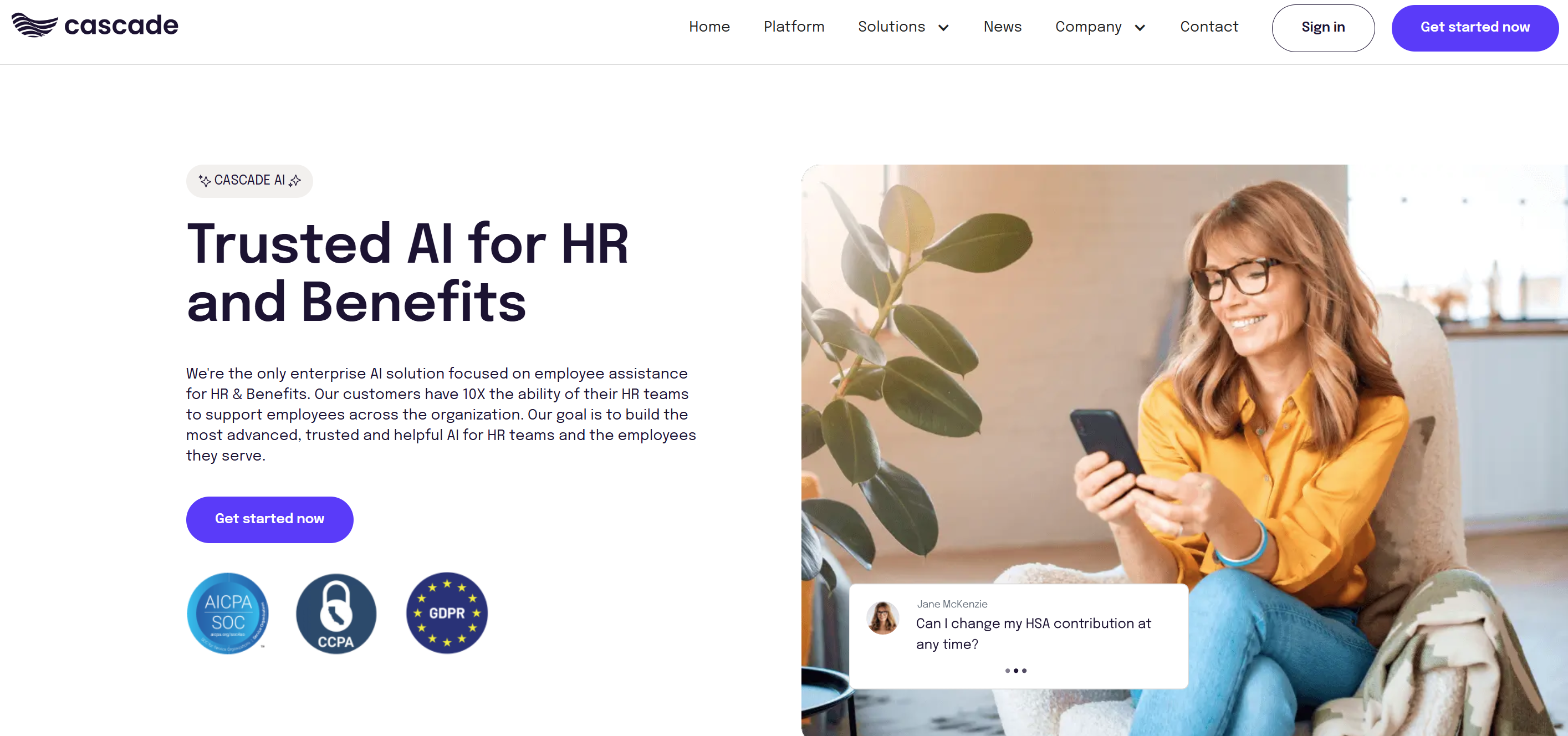Cascade AI Secures $3.75 Million in Funding Led by Gradient
Cascade AI has secured a $3.75 million seed investment, led by Google’s Gradient, to expand its personalized AI HR assistant designed for employee-specific HR inquiries. The investment will help Cascade AI scale and enhance its platform, enabling companies to streamline HR processes such as onboarding, benefits enrollment, and employee support. Successes reported include a 50% reduction in HR ticket volume and a high adoption rate among employees who turn to AI for complex and private questions. Founded by former Microsoft employees Ana-Maria Constantin and Pulak Goyal, Cascade AI aims to transform HR with customized solutions, offering quick, impactful support for global teams.

SEATTLE (Oct. 24, 2024) – Cascade AI, the most powerful AI assistant built to respond to human resources (HR) inquiries at an individual employee level, today announced it has secured a $3.75 million seed investment led by Gradient, Google’s early-stage AI fund, with participation from Myriad Venture Partners and Success Venture Partners. This investment will enable Cascade AI to continue to build out customer-requested features and expand its platform to support increased demand driven by early customer successes.
“Fast uptake from employees has proven that personalized HR support can be scaled in a way that both frees up HR and improves the employee experience,” said Ana-Maria Constantin, CEO of Cascade AI. “We’re working with exceptional companies on the leading edge of AI for HR, and we’re excited to activate some of their ideas to further improve employee support across benefits, Total Rewards, employee onboarding and offboarding, open enrollment, manager training, learning and development, and more.”
Real-world successes so far include:
- Free up HR time: By implementing Cascade AI, customers have seen an immediate 50% reduction in HR inquiry ticketing volume and expect up to 85% reduction as user adoption increases.
- One path for employee support: Customers with complex business structures and diverse teams saw such positive employee uptake they’re making Cascade AI the primary resource for all HR inquiries globally, creating an efficient support path that didn’t exist before.
- Employees turn to AI for complex, private questions: Employees ask Cascade AI about sensitive needs they wouldn’t ask of managers. The platform provides a confidential channel for employees to seek guidance on complex topics such as mental health benefits, weight loss medication, career development, family leave policies, and wellness programs.
- Rapid Implementation: The AI assistant can be customized and built within hours, and full implementation, including HR team collaboration and employee rollout, can be achieved in as little as two weeks.
Microsoft alumni Constantin and co-founder Pulak Goyal designed Cascade AI for human resources because HR touches more business needs and impacts more lives than any other company function. The investment will enable initiatives including building AI agents that can help employees update personal information, enroll in benefits and perform other tasks; accelerating development of new reporting capabilities like office-level utilization; and enhancing the platform’s support of companies with global workforces.
“Ana and Pulak’s understanding of the specialized needs of the complex HR space is evident in the feedback from early customers,” said Eylul Kayin, Partner at Gradient. “We see Cascade AI as a game-changer for both daily operations and complex initiatives like mergers and acquisitions, global growth, and other business transformation.”
About Cascade AI
Cascade AI scales HR’s personal attention with the most powerful genAI platform built to respond to human resources inquiries at an individual employee level. It was founded to bring enterprise-level efficiencies to employee benefits, where great innovation was emerging at the same time cost and complexity were spiraling out of control. Cascade AI now supports HR functions across benefits, Total Rewards, employee onboarding and offboarding, open enrollment, and more. Now, HR functions can support more employees faster; free up time to manage the dynamism and complexity of local and global business initiatives
